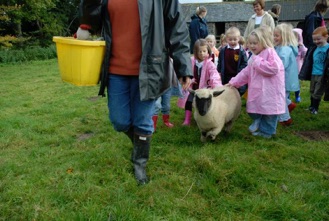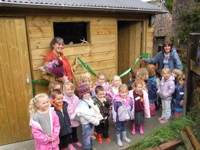FREE SCHOOL VISITS

School visits
Each year we welcome up to twenty five school and pre-school groups to the mill and smallholding. These visits are free and planned to suit the individual needs of the group. The Educational Access requirements (from Natural England) are that the group is subject to OFSTED inspections and must follow the National Curriculum. A group booking must include at least six children in addition to the adults. The visits are usually arranged for a morning or afternoon session and are linked to farming, the environment or the curriculum. Booking is essential.
For teachers bringing a school group we have prepared a Teachers' Farm Information Pack which is available free to all schools making a visit. This pack, available as a CD, contains important information for teachers planning a visit: site details, an ideas bank with related worksheets, the booking form and health and safety information. The document on health and safety and the booking form are also available online here.
Read Rosie’s articles “School’s Out”- about school visits and “Coming Clean” about on-farm hygiene here
A brief outline of what we offer
The Bridge Mill is a smallholding of 16 acres set in the valley of the upper Tamar in North Devon. It is farmed along traditional lines without use of chemicals.
Among the points of interest are:
A working water mill - built in the nineteenth century, still containing some of the original machinery. There has been a mill on this site since the Domesday survey of 1086 and some of this previous history has been recorded. The mill has been restored to working order and the waterwheel turns the stones to grind wheat into flour. For schools, a visit to the mill links well with a wide range of subjects such as history - from Saxon, through the Tudor and Victorian periods to the present day; and local history studies; technology - simple technological principles - levers, pulleys and gears; design technology - making and testing waterwheels; art - sketching and digital photography; and literacy - colloquial expressions and stories.
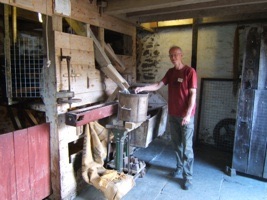
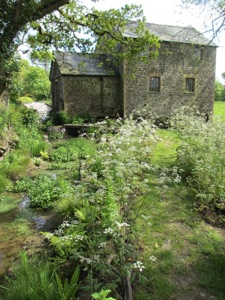

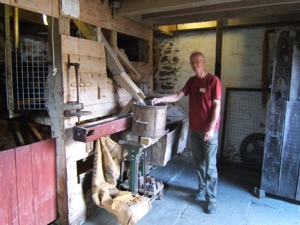
A range of traditional farm buildings - mostly Victorian like the mill and built in stone with slate roofs. There is a stable with a cobbled floor and hay loft above, a shippen for milking four cows and there are two old pig-sties. The Dutch hay-barn with adjustable-height roof has been restored to working order. An old cob barn was restored in 2010. The farm buildings with the mill make an ideal focus for a study of the history of farming for schools or adult groups.
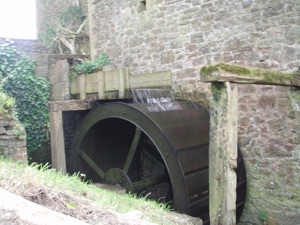
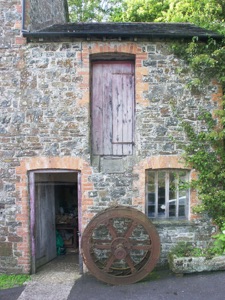
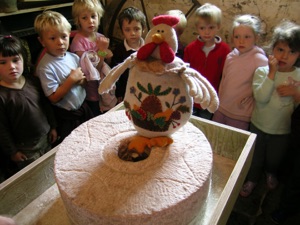
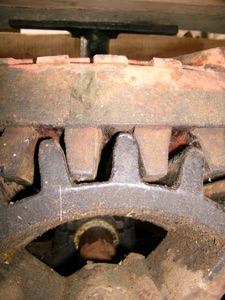


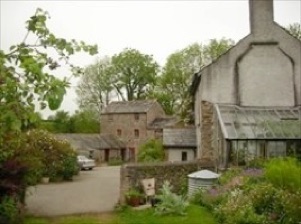
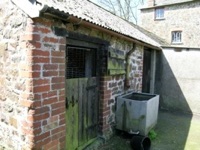
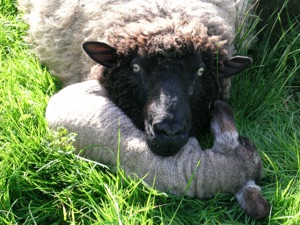
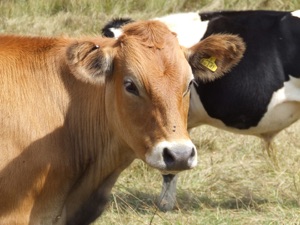
Lake, ponds and riverside conservation area - There are 600 yards of frontage to the river Tamar, three very different ponds and an area of Culm grassland, which combine to attract breeding birds, amphibians and dragonflies, plus regular visits from kingfisher, heron and otter. Some schools like to make a study of the different water habitats and life cycles so come prepared with wellies!
We have a pond dipping area with all the equipment provided. The Bridge Mill is designated as a County Wildlife Site and a key Devon Dragonfly site.
Tame livestock – very friendly sheep and lambs, hens, ducks and ducklings. Meeting the animals is always popular with school and adult groups alike and the animals play an important role in the story of "The Little Red Hen" which is a favourite for our younger visitors.
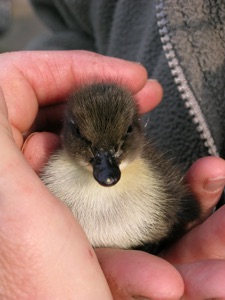

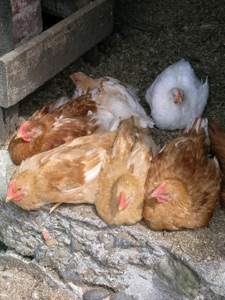
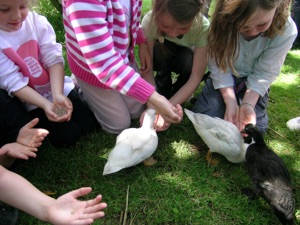
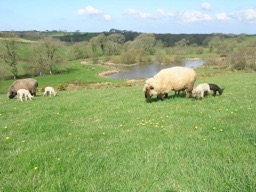


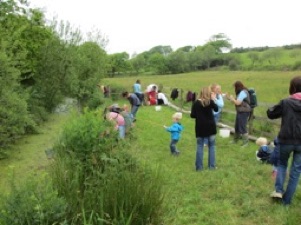
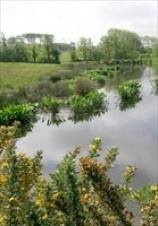
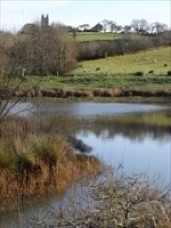
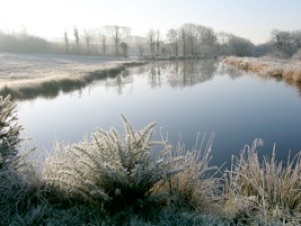
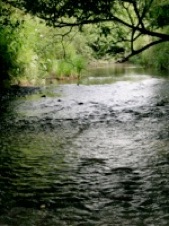
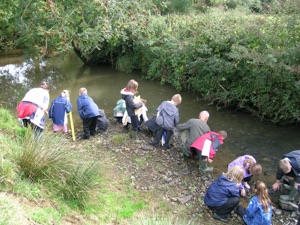
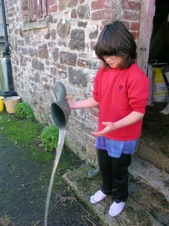
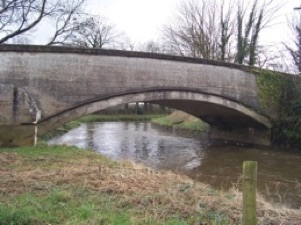
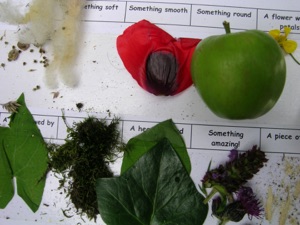
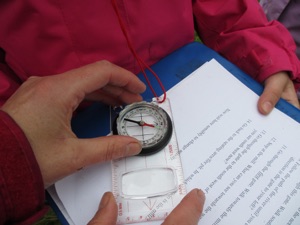
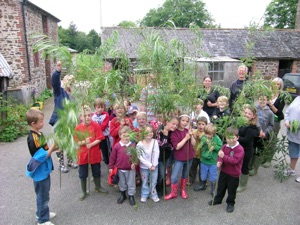
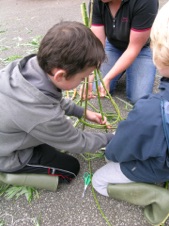
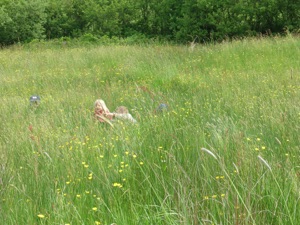
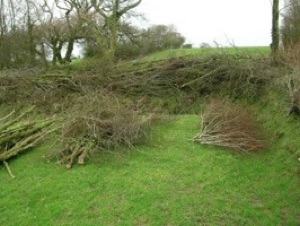
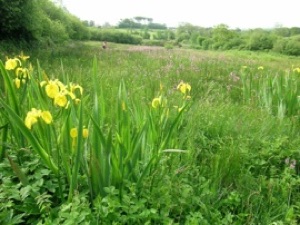
The organic gardens – where fruit and vegetables are grown as well as many herbs and cottage plants. Dye plants are grown and used to colour the white fleeces from our sheep (see below). Adults may like to visit Rosie's plant stands to browse the plants for sale and there are often free plants for visiting schools to take back for the school’s environmental area.
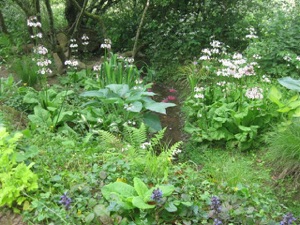
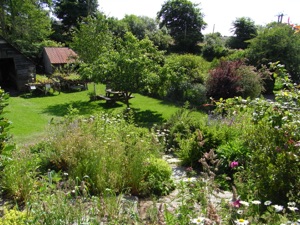
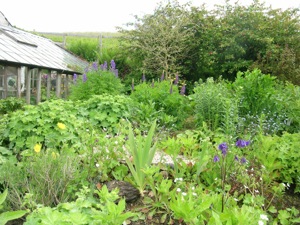
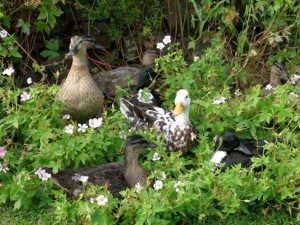
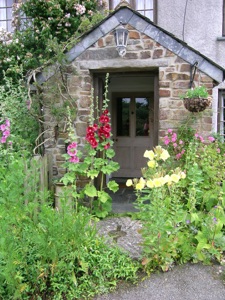
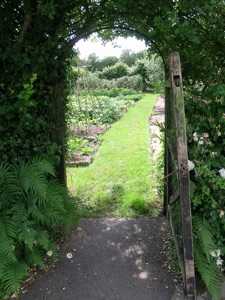
Children studying a particular period in history might like to look at the medicinal and food plants of that period and younger visitors might find Mr MacGregor in the garden!
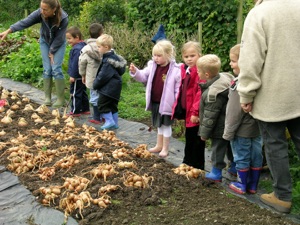
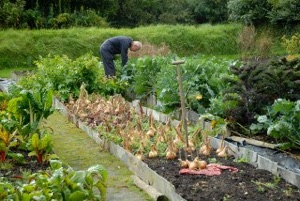
Some school groups, especially after-school gardening clubs, like to take a look at environmental issues surrounding organic gardening and study the soil fertility cycle.
Natural dyeing, spinning and felt making - can all be seen in Rosie’s workroom, a useful space if you are unlucky with the weather! School groups studying textiles might like to visit the workroom to find out about wool and listen to the "story of a woolly jumper", or if they have been studying the Saxons, the "story of a woolly tunic". Rosie is happy to talk to the children about different animal and vegetable fibres and the textiles and dyes that relate to a particular period in history.

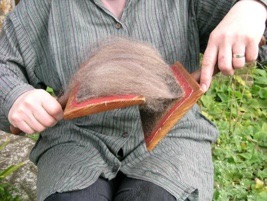
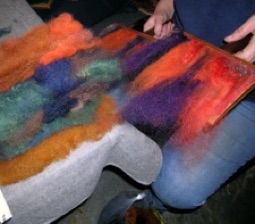
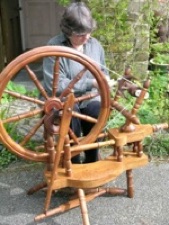
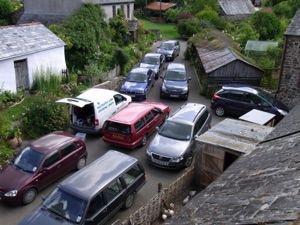

The Bridge Mill is open from
May to October
In the workroom there is a kettle and everything you need to make tea and coffee during a break.
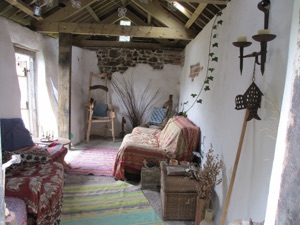
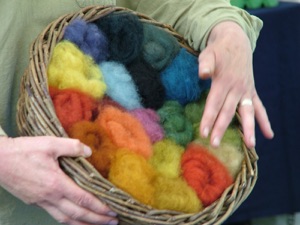
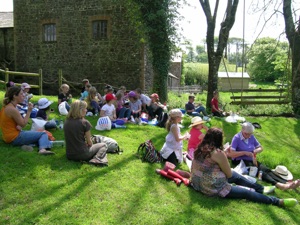
Facilities - There are grassed areas for picnics on fine days, or a dry stable with hay-bale seating for wet weather lunches
If it is very hot we can always find a shady picnic place, and the recently restored cob barn makes a cosy seating area for smaller groups.
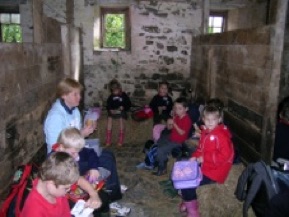
Click here to see examples of
activities undertaken in the past
with schools and other groups
There is parking space on site for cars or minibus, or nearby off the public road for coaches. New toilet and hand-washing facilities were completed in September 2009 and cater for wheelchair users. Nappy changing facilities are also available.
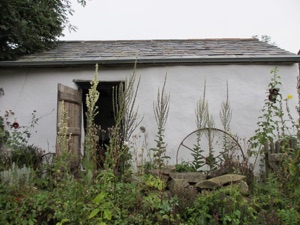
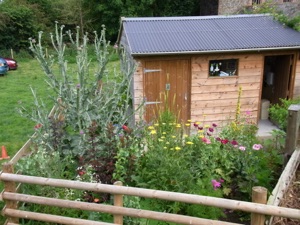
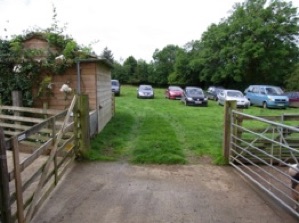

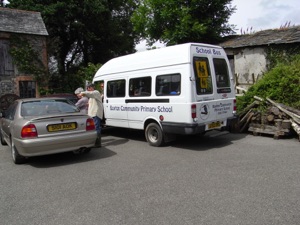
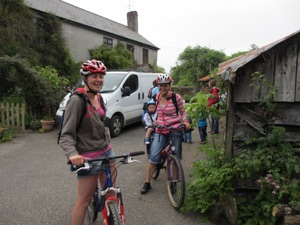
Visits to the Bridge Mill are offered free of charge under the Environmental Stewardship Educational Access scheme.
Please contact Katie Chandler for further details or to make a booking:
Phone 01288 382803 or email here
Enjoy a circular walk - around the smallholding, taking in the lovely views plus points of interest such as hedge-laying, positive management for wildlife, grassland management, organic/sustainable farming etc. With school groups, the children might enjoy a compass trail and map work, collect items on a scavenger list or gather materials for an activity back in the yard.
In the meadow, the focus might be on habitats and life cycles, a study of plant families or just an excuse to hide!
